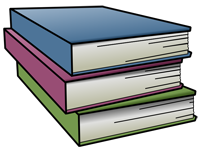- Riker Hill Elementary School
- 3rd Grade ELA Scope and Sequence
-
ELA Reading Curriculum

In addition to reading comprehension, we will also be working on multisensory reading strategies and sight words. Typically, the homework assigned will relate to reading comprehension as well as spelling patterns/sight words.
- Launching Fiction; Building a Community of Readers - Students will focus on setting up the Reader's Workshop via reading literature and character work.
- Launching Non-Fiction; Building a Community of Investigators - Students will enjoy reading and being read to using a wide variety and deep engagement of high-quality informational texts. Students will add to their repertoire of strategies for reading a variety of genres including nonfiction and narrative nonfiction. Students will strengthen their knowledge about the various text features, their use, and how they contribute to and clarify a text. Key strategies the students will develop include: determining importance, locating the main idea and supporting details, questioning, determining the meaning of and using new content-specific vocabulary, and applying analytical thinking to compare and contrast. Students will identify that the purpose of information texts is to inform and offer information related to a topic of interest or study.
- Interpreting Traditional Literature - Students will explore fables, folktales, and myths. Students will learn the elements of traditonal literature and how each type has specific characteristics. Students will notice that traditional literature texts explain difference aspects of the world around them. That includes themes, common messages, and explanations of the world.
- Exploring Opinion and Persuasive Text - Students will explore different perspectives on real-life issues. Students will read or view videos and texts that will allow them to understand and compare/contrast varying perspectives on a topic.
- Realistic Fiction - Book Clubs - Realistic fiction book clubs should target the structure of a realistic fiction text. In this unit, there will be a focus on character, specifically, how the characters develop and change throughout the book.
- Informational Reading - Content Area Research - This unit aims to have children close reading non-fiction text as an investigator. Students will use the inquiry process to help develop questions, pick a topic, and set a purpose for their research. Students will learn how to sort, categorize, and organize information about a topic in order to present the information learned.
ELA Writing Curriculum

- Launching Personal Narrative: The Writing Community & Process - At the beginning of the year, the teacher will establish the behavioral and management expectations within writing workshop. Students will ue the writing process to effectively generate ideas, plan, draft, edit and revise personal narratives. Teachers will model effective use of structure and craft within mentor texts to provide direct instruction for writing workshop. Conferring and feedback will help students develop their writing on an ongoing basis throughout the unit.
- Expository Nonfiction - Students write pieces of various lengths, including a research based report, in expository style to share information with others. They will gather information through research, restate that information in their own words and organize it in a clear logical way. The students will analyze informative writing by others to identify its componenets and will incorporate those components.
- Writing about Reading (Mini Literary Essay) - Students will focus on developing an opinion/theory/thesis/claim within a given collection of texts. Students will provide supporting details and evidence to persuade readers to understand their opinion/theory/thesis/claim. Through this unit, students will work on developing an understanding of essay format, writing in response to reading, and the use of transitional words and phrases.
- Opinion Writing - Students will focus on developing an opinion/theory/thesis/claim within a given collection of texts. Students will provide supporting details and evidence to persuade readers to understand their opinion/theory/thesis/claim. Through this unit, students will work on developing an understanding of essay format and the use of transitional words and phrases.
- Writing Fiction - The realistic fiction unit aims to have children write stories that involve real life characters and problems that a child can relate to. The character should be developed to have internal and external character traits that drive the plot of the story. The story should follow the elements learned in the realistic fiction reading unit (beginning, middle, and end graphic organize). Through solving the problem, the character learns a life lesson that the reader can apply to their own life.
- Informational Writing - Content Area Research - The informational unit aims to have children use research collected in reading for their writing pieces. Students will examine a topic and convey ideas and information clearly in their piece. Students will become experts on their topic so they can convey and teach information to peers.
Ongoing ELA Unit
Word Study, Grammar, Usage, and Mechanics
Students will be immersed in word study (phonics + spelling + vocabulary) instruction throughout the year. Word study must include explicit phonological and phonemic awareness activities, phonics, spelling and vocabulary instruction. Phonemic awareness and phonics are not the same, but are mutually dependent. Phonics instruction connects the sounds of language (phonemes) to the written symbols (graphemes) that represent them. Phonics instruction is commonly understood as sound-symbol relationship and must be instructed in a systematic and explicit manner to be effective. Phonics instruction must follow a logical sequence that introduces simple and common relationships, build in complexity, and support students with decoding and encoding.
Students will also be introduced to sight words, words that are not phonetically based and are instructed through various modalities that support memorization and automaticity.
Sight word instruction is supported through various strategies and word walls. Through the study of these words, students will begin to learn the meaning of new words. Tier 1 (everyday words), Tier 2 (academic words), and Tier 3 (domain-specific) vocabulary words must also be taught explicitly.
Finally, this unit will address the basic principles for grammar, usage and mechanics in Grade 3, and teachers will teach these skills authentically throughout the year. Teachers will follow the LPS scope and sequence for grammar, usage, and mechanics.
- Launching Fiction; Building a Community of Readers - Students will focus on setting up the Reader's Workshop via reading literature and character work.

